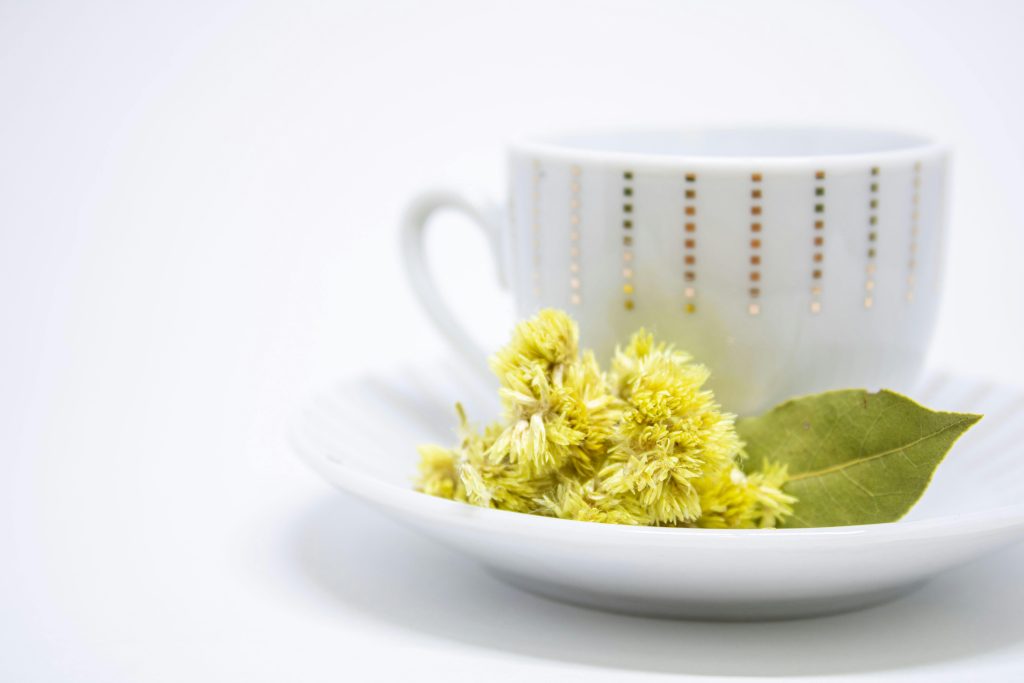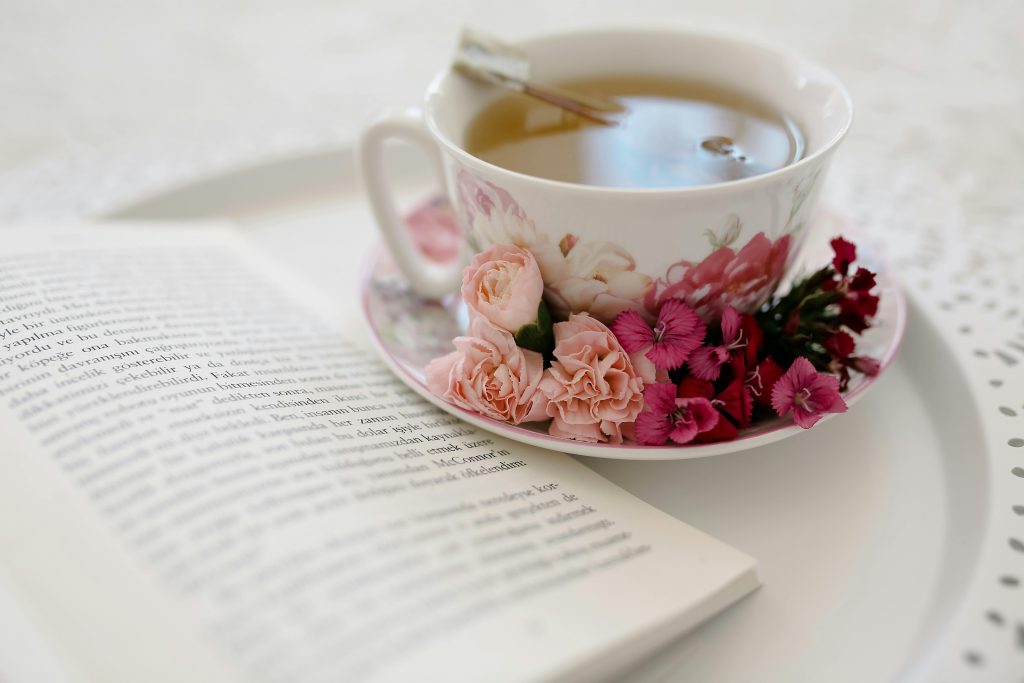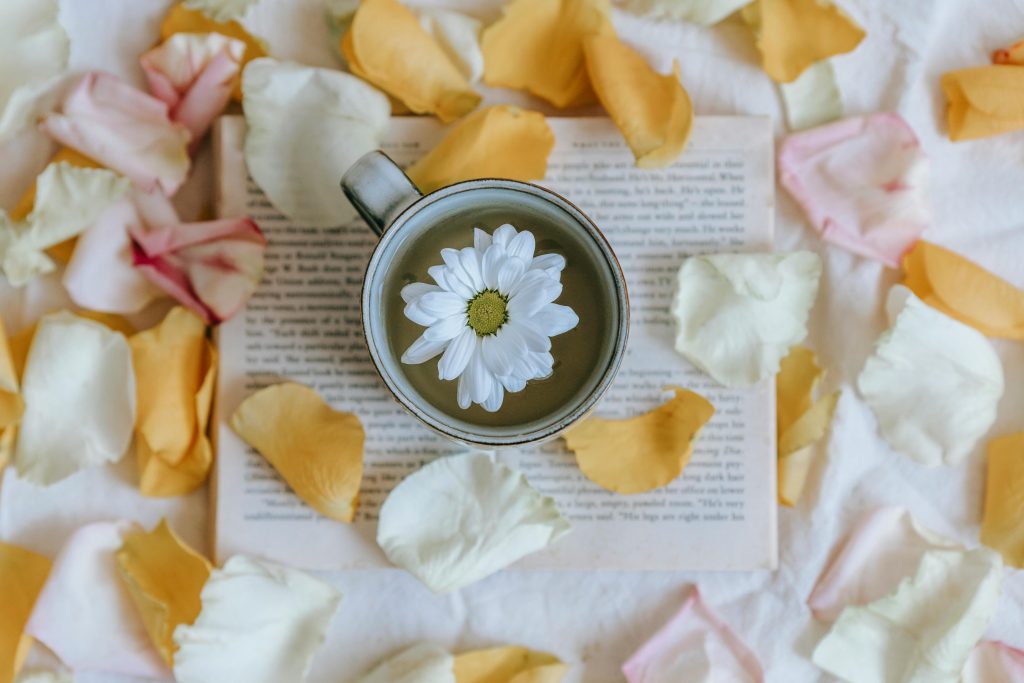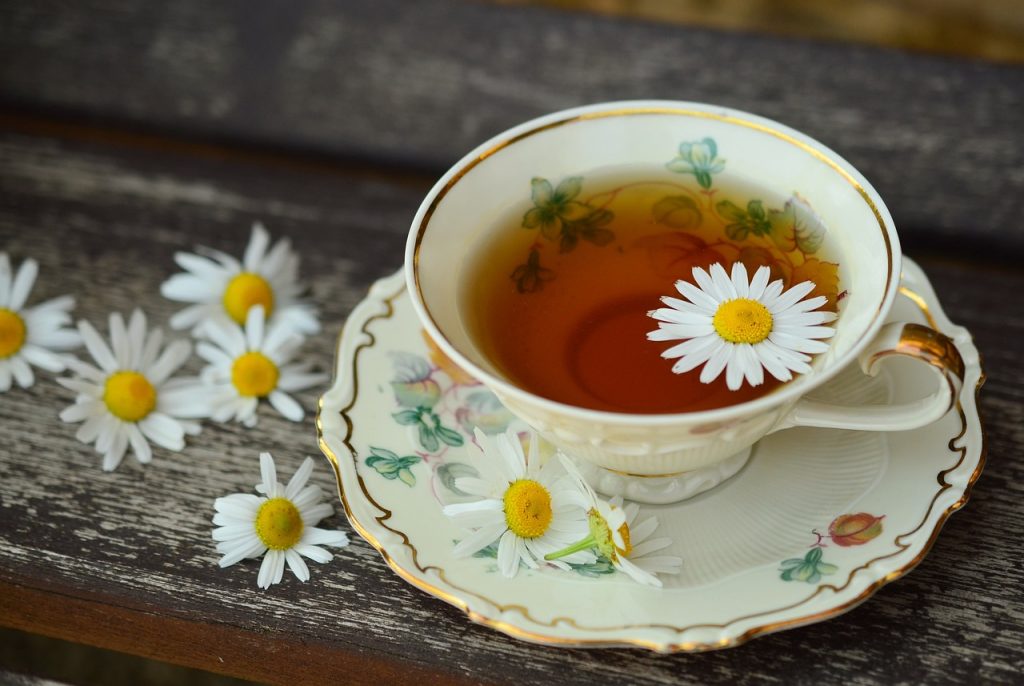In the hustle and bustle of modern life, we are constantly in pursuit of things that not only bring joy but also benefit our physical and mental well-being. Flower tea, like an elegant messenger from the depths of time, infuses our lives with tranquility and vitality through its fragrance and health benefits. When we hold a cup of aromatic flower tea, it’s as if we are holding a key to health connected to nature.
What is Flower Tea, click here to find out
The History and Cultural Background of Flower Tea
Flower tea has a long history in China, dating back to the Song Dynasty. During that time, people began mixing fragrant flowers with tea leaves, allowing the leaves to absorb the floral scent, thus creating the uniquely flavored flower tea.
In different regions, flower tea carries its own unique cultural significance. For example, in Fuzhou, jasmine tea is renowned. It is not only a local specialty but also an important part of Fuzhou’s culture. The refreshing scent of jasmine blends harmoniously with the rich flavor of the tea leaves, witnessing the historical and cultural heritage of Fuzhou.
In Suzhou, the magnolia flower tea is also highly cherished. The elegant aroma of magnolia complements the freshness of the tea leaves, reflecting the gentle and delicate nature of the Jiangnan water town.
The Popularity of Flower Tea in Modern Life
In the fast-paced modern society, flower tea has gained widespread popularity due to its unique charm. On one hand, its fragrance can soothe people’s tense nerves, helping them relax amidst their busy work schedules. Whether in the office during the afternoon or at home during leisure time, a cup of flower tea can bring a moment of peace.
According to market data, the sales of flower tea have been rising year by year. In major tea markets and e-commerce platforms, the variety of flower teas is increasingly diverse, meeting the needs of different consumers. The reason for its popularity also lies in its diversity. From refreshing chrysanthemum tea to romantic rose tea, and elegant osmanthus tea, each type of flower tea offers a unique flavor and benefits, providing people with a wide range of choices.
Common Types of Flower Tea and Their Characteristics
Rose Tea
Rose tea is made from rose petals, boasting a vibrant color and a rich fragrance. It is not only highly ornamental but also rich in nutrients.
Benefits: Rose tea has beautifying effects, improving skin tone and reducing the appearance of dark spots and wrinkles. It also helps alleviate emotions, reduce stress, and has a soothing effect on anxiety and depression.
Jasmine Tea
Jasmine tea is made by scenting tea leaves with jasmine flowers, resulting in a fresh, elegant aroma and a rich taste.
Benefits: Jasmine tea has cooling and detoxifying effects, as well as antibacterial and anti-inflammatory properties. It aids digestion, relieves stomach discomfort, and refreshes the mind, enhancing work efficiency.
Chrysanthemum Tea
Chrysanthemum tea is typically made from dried chrysanthemum flowers, with varieties such as yellow chrysanthemum and white chrysanthemum.
Benefits: Chrysanthemum tea has liver-cleansing and vision-improving properties, and it reduces internal heat and detoxifies the body. For those who spend long hours in front of a computer, drinking chrysanthemum tea can help alleviate eye fatigue and dryness.
Active Compounds in Flower Tea
Polyphenols
Polyphenols are one of the key components in flower tea, known for their strong antioxidant properties. They help eliminate free radicals in the body, reduce oxidative damage, and prevent the onset of various chronic diseases.
For example, rose tea is rich in polyphenols, which protect cells from oxidative stress and slow down the aging process.
Flavonoids
Flavonoids are also widely present in flower tea, offering various biological activities. They can regulate the immune system and enhance the body’s resistance.
Chrysanthemum tea is particularly rich in flavonoids, which help boost the immune system and prevent colds and other illnesses.
Essential Oils
Essential oils give flower tea its distinctive fragrance and also have certain pharmacological effects. They can soothe the nerves, relieve stress, and promote sleep.
The essential oil components in jasmine tea can relax the body and mind, making one feel joyful and peaceful.

The Health Benefits of Flower Tea
Flower tea offers numerous benefits for our health and beauty, thanks to its unique properties. Whether it’s antioxidant effects, promoting digestion, relieving stress, enhancing beauty, or boosting immunity, flower tea showcases its powerful health-enhancing abilities. In our daily lives, let’s brew a cup of fragrant flower tea and enjoy the health and beauty it brings.
Antioxidant Effects
The Antioxidant Mechanism of Polyphenols
Flower tea is rich in polyphenols, such as catechins and anthocyanins, which have strong antioxidant capabilities. These polyphenols can neutralize free radicals in the body, which are a major cause of cell damage and aging. Free radicals attack cell membranes, proteins, and DNA, leading to various chronic diseases.
Polyphenols stabilize free radicals by donating electrons or hydrogen atoms, thereby preventing further damage to cells. They act as “guardians” of human cells, constantly defending against free radical attacks.
Anti-Aging Effects
Due to the antioxidant properties of polyphenols, flower tea can help slow down the aging process. It reduces the formation of wrinkles, maintains skin elasticity and radiance, and protects organs and tissues from oxidative damage, lowering the risk of cardiovascular diseases, cancer, and other chronic conditions.
For instance, the polyphenols in rose tea can promote collagen production, enhance skin firmness, and make the skin appear more youthful.
Promoting Digestion
Regulating Gastrointestinal Function
Many flower teas have beneficial effects on gastrointestinal function. They can stimulate the secretion of gastric juices, enhance intestinal peristalsis, and aid in the digestion and absorption of food. Additionally, they can relieve symptoms of stomach discomfort, such as bloating and pain.
Some components in flower tea also have antibacterial and anti-inflammatory properties, which can inhibit harmful bacteria in the gastrointestinal tract, maintain a balanced gut flora, and protect the gastrointestinal mucosa.
Common Flower Teas That Aid Digestion
Jasmine Tea: Jasmine tea has the effects of regulating qi, relieving depression, and harmonizing the middle and lower energy. It can promote gastrointestinal peristalsis and aid digestion. Its fresh aroma and rich taste make it suitable for drinking after meals.
Hawthorn Flower Tea: Hawthorn is rich in organic acids that can stimulate gastric juice secretion and promote digestion. Hawthorn flower tea has a sweet and sour taste, making it effective for improving indigestion and loss of appetite.
Dried Tangerine Peel Tea: Dried tangerine peel has the functions of regulating qi, strengthening the spleen, and drying dampness. It can regulate gastrointestinal function and relieve bloating. Dried tangerine peel tea has a unique aroma and can stimulate the appetite.
Relieving Stress and Anxiety
Effects of Aromatic Compounds in Flower Tea on the Nervous System
The aromatic compounds in flower tea can be transmitted to the limbic system of the brain through the olfactory nerves, influencing nervous system activity. The limbic system is closely related to emotions and memory.
Some aromatic compounds can stimulate the brain to secrete neurotransmitters such as endorphins and dopamine, which produce feelings of pleasure and relaxation, thereby relieving stress and anxiety.
Recommended Flower Teas for Relaxation
Lavender Tea: The aroma of lavender has a calming and soothing effect, helping to relieve tension, relax the body and mind, and improve sleep quality.
Chamomile Tea: Chamomile has a mild and soothing fragrance that can reduce mental stress and relieve anxiety and depression. It also has some antispasmodic effects, which can help alleviate gastrointestinal cramps.
Rose Tea: The rich and captivating aroma of rose tea can regulate emotions, elevate mood, and has some antidepressant effects, making it a good choice for relieving psychological stress.
Enhancing Beauty
Skin-Healthy Ingredients in Flower Tea
Flower tea contains various skin-beneficial ingredients, such as vitamin C, vitamin E, and flavonoids. These ingredients have antioxidant, anti-inflammatory, and moisturizing effects, protecting the skin from environmental damage.
Vitamin C inhibits melanin production and promotes collagen synthesis, making the skin fairer and smoother; vitamin E has antioxidant and moisturizing effects, preventing skin dryness and aging; flavonoids reduce free radical damage to the skin and delay skin aging.
Effects on Acne, Whitening, and Other Skin Issues
Chrysanthemum Tea: Chrysanthemum has heat-clearing and detoxifying effects, regulating endocrine function, and reducing oil secretion, which greatly improves acne-prone skin. The flavonoids in chrysanthemum also have a whitening effect, inhibiting melanin production and brightening the skin.
Rose Tea: The polyphenols in rose tea promote blood circulation and increase nutrient supply to the skin, making it rosy and radiant. It also has moisturizing effects, preventing skin dryness and reducing wrinkle formation.
Lemon Flower Tea: Lemon is rich in vitamin C, which has strong antioxidant and whitening effects. Lemon flower tea inhibits melanin deposition, fades dark spots, and makes the skin fairer.
Boosting Immunity
Antibacterial and Antiviral Compounds in Flower Tea
Some flower teas contain antibacterial and antiviral compounds, such as honeysuckle and forsythia. These components inhibit the growth and reproduction of bacteria and viruses, boosting the body’s immune system.
Honeysuckle contains chlorogenic acid, flavonoids, and other compounds that have antibacterial, antiviral, and anti-inflammatory effects. Honeysuckle tea is effective in preventing colds, flu, and other illnesses.
Forsythia contains forsythoside and phillyrin, which have heat-clearing, detoxifying, antibacterial, and anti-inflammatory properties. Forsythia tea can enhance the body’s resistance and prevent infectious diseases.
Supporting the Immune System
Flower tea is rich in various nutrients, such as vitamins and minerals, which provide essential support for the immune system. These nutrients participate in the production and activity regulation of immune cells, enhancing their function and boosting the body’s immunity.
Goji berry tea is rich in goji polysaccharides, vitamin C, and other components that regulate the immune system and enhance the body’s resistance. It also has the functions of nourishing the liver and kidneys and improving vision, making it suitable for long-term consumption.

Recommendations for Drinking Flower Tea
Flower tea is a precious gift from nature. By adopting the correct drinking methods and reasonable combinations, we can fully harness the effects and benefits of flower tea, enhancing our health and beauty. In our busy lives, it’s worth pausing, brewing a cup of fragrant flower tea, and savoring the peace and beauty it brings. Let flower tea become an indispensable part of our daily lives.
Suitable Flower Teas for Different Seasons and Times of Day
Spring
Spring is a season of renewal, where the body’s yang energy rises. It is suitable to drink flower teas that clear the liver, brighten the eyes, and soothe the liver and qi. For example, chrysanthemum tea can disperse wind-heat, clear the liver, and brighten the eyes, relieving common spring symptoms like dry eyes and internal heat.
Rose tea is also a great choice; it can regulate emotions, relieve stress, and help maintain a joyful mood during the spring.
Summer
In the hot summer, the body tends to sweat more, so it’s suitable to drink flower teas that clear heat, relieve summer heat, and quench thirst. For example, honeysuckle tea is cold in nature and sweet in taste, capable of clearing heat, detoxifying, and dispersing wind-heat, making it an ideal beverage for summer.
Peppermint tea is also recommended as it has cooling properties, refreshes the mind, and can relieve the heat and fatigue of summer.
Autumn
Autumn brings dry weather, making it easy for the body to experience dry mouth, coughing, and other discomforts. It’s advisable to drink flower teas that nourish yin, moisten dryness, and soothe the lungs. Lily flower tea, for instance, can moisten the lungs, relieve coughing, and calm the mind, easing autumn dryness.
Osmanthus tea is another good option; its rich fragrance warms the stomach, dispels cold, and can alleviate autumn coughing symptoms.
Winter
In the cold winter, the body needs to replenish yang energy, so it’s suitable to drink flower teas that warm yang, dispel cold, and strengthen the stomach and spleen. For example, ginger and date tea, where ginger warms the middle and dispels cold, and red dates strengthen the spleen and replenish blood. Drinking this combination can warm the body and boost immunity.
Jasmine tea is also suitable for winter as it can regulate qi, relieve depression, warm the stomach, and ease pain, keeping you comfortable in the cold.
Flower Teas for Different Times of the Day
In the morning, a cup of jasmine or rose tea can refresh the mind and set a positive tone for the day. In the afternoon, when work fatigue sets in, a cup of peppermint or chrysanthemum tea can relieve fatigue and enhance work efficiency. In the evening, lavender or chamomile tea is ideal for relaxing the body and mind and promoting sleep.
Brewing Methods and Precautions
Brewing Methods
- Prepare suitable tea utensils, such as a transparent glass cup or a ceramic cup.
- Determine the appropriate amount based on the type of flower tea and personal preference. Generally, 3-5 grams of flower tea is recommended for each brew.
- Choose the right water temperature. Different flower teas require different water temperatures. Generally, green flower teas are best brewed at around 80°C, while black flower teas can be brewed at temperatures above 90°C. For delicate flower petals, such as rose and jasmine, avoid using excessively high temperatures to preserve their nutrients and aroma.
- Place the flower tea in the tea utensil, pour in an appropriate amount of hot water, and steep for 3-5 minutes before drinking. Adjust the steeping time to suit your taste.
Precautions
- When purchasing flower tea, choose products from reputable sources, and check the production date, shelf life, and ingredient list to ensure quality and safety.
- Some flower teas have medicinal properties. For example, rose tea has blood-activating and stasis-removing effects, so pregnant women and menstruating women should avoid excessive consumption. It’s advisable to consult a doctor or professional before drinking flower tea.
- Avoid drinking flower tea on an empty stomach to prevent irritation to the gastrointestinal tract. Also, avoid excessive consumption to prevent overburdening the body.
Flower Tea Combinations with Other Traditional Chinese Herbs
Rose Tea with Goji Berries
Drinking a combination of rose tea and goji berries enhances beauty, nourishes the liver and kidneys, and boosts the immune system. Goji berries are rich in nutrients that regulate the immune system and strengthen the body’s resistance. Combined with rose tea, they not only provide nutritional supplementation but also improve skin tone, making the skin healthier and more radiant.
Brewing Method: Take 3-5 rosebuds and about 10 goji berries, place them in a cup, and brew with water at about 80°C. Steep for 5 minutes before drinking.
Chrysanthemum Tea with Honeysuckle
Combining chrysanthemum tea with honeysuckle has heat-clearing and detoxifying effects, especially suitable for summer. This combination can alleviate symptoms of heatstroke and internal heat.
Brewing Method: Take 3-5 chrysanthemum flowers and 3-5 grams of honeysuckle, place them in a cup, and brew with water at about 90°C. Steep for 3-5 minutes before drinking.
Jasmine Tea with Dried Tangerine Peel
Jasmine tea paired with dried tangerine peel has the effects of regulating qi, strengthening the spleen, and drying dampness, helping with digestion and relieving stomach discomfort. It can also regulate emotions, bringing joy and relaxation.
Brewing Method: Take 3-5 grams of jasmine tea and 3-5 grams of dried tangerine peel, place them in a cup, and brew with water at about 90°C. Steep for 5 minutes before drinking.

Contraindications and Side Effects of Flower Tea
Flower tea is undoubtedly a wonderful gift from nature, enriching our lives with color and health elements. However, while enjoying the benefits of flower tea, it is essential to be aware of its contraindications and potential side effects. Only by understanding these can we correctly and reasonably consume flower tea, ensuring it serves as a health aid rather than a hidden risk. Pregnant women, individuals with allergies, and others should choose and consume flower tea scientifically, based on their physical condition and needs, to fully leverage its beauty and health benefits.
Precautions for Specific Groups
Pregnant Women
Pregnant women need to be particularly cautious when consuming flower tea. Some flower teas, such as rose tea, may have blood-activating and stasis-removing effects. Excessive consumption may increase the risk of miscarriage.
Flower teas with strong aromas may cause discomfort in pregnant women, affecting their appetite and sleep. Pregnant women should consult their doctor before choosing flower tea to avoid adverse effects on the fetus due to improper consumption.
Individuals with Allergies
People with allergies should be aware of any plant or floral components they may be allergic to before drinking flower tea. For instance, individuals allergic to pollen may experience allergic reactions such as skin itching, swelling, or difficulty breathing if they consume flower tea containing pollen from the same plant source.
It is advisable to try a small amount of a new flower tea and observe for any allergic reactions before regular consumption.
Possible Side Effects of Flower Tea and Their Causes
Gastrointestinal Discomfort
Cause: Some flower teas may contain irritants, such as certain acidic substances or caffeine. Excessive consumption can irritate the gastrointestinal tract, leading to symptoms like stomach pain, bloating, or diarrhea. For example, hawthorn flower tea is rich in organic acids, which can increase stomach acid production and cause discomfort if consumed in large amounts.
Suggestion: Control the amount of flower tea consumed and avoid drinking it on an empty stomach. If gastrointestinal discomfort occurs, stop drinking the tea and consult a doctor.
Sleep Disturbances
Cause: Certain flower teas contain caffeine or other stimulating compounds. For example, peppermint tea can stimulate the nervous system to some extent. Consuming it in large quantities in the evening may lead to insomnia.
Suggestion: Avoid drinking stimulating flower teas in the evening, especially if you have sleep issues. Instead, opt for calming teas like lavender or chamomile tea to promote relaxation and improve sleep quality.
Drug Interactions
Cause: If you are taking medications, some components in flower tea may interact with the drugs, affecting their efficacy or increasing the risk of adverse reactions.
Suggestion: Individuals taking medication should consult their doctor or pharmacist before consuming flower tea to understand any potential risks of drug interactions.
